Will minority status help Cornwall?
- Published
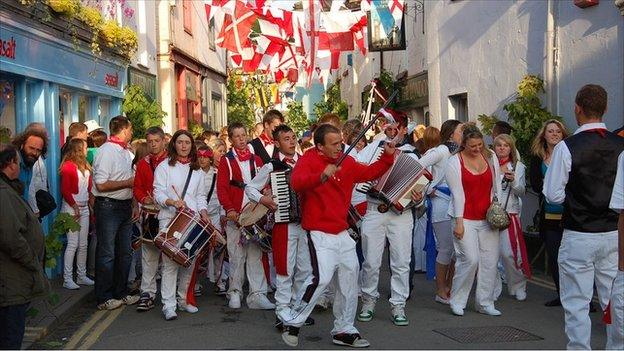
Padstow's Obby Oss Celebrations mark the Celtic festival of Beltane, the spring event dedicated to the return of the sun god Bel
After years of campaigning Cornwall is moving closer to gaining the cultural and political recognition some feel it deserves. The Cornish people will be granted minority status under European rules for the protection of national minorities. But what will this actually mean?
Walk down a street in one of the many coastal villages in Cornwall and you will most likely see a long line of Cornish pasty shops, cafes serving Cornish cream teas and - when you reach the harbour - the distinct smell and look of a proud fishing history.
Its cobbled streets have a rich past and even in Cornwall's larger towns, many of which were built up around its former mining industry, there is something intangible that sets this part of the country aside. You know you are in Cornwall.
Listen to the news in Cornish
And yet, the sense of being in a nation apart - such as one experiences in Scotland or Wales - does not quite apply in Cornwall.
While it has its own language, and many of the place names are in Cornish, there are few other outward signs of it to be seen as you move around the peninsula.
The minority status, which already applies to the Scots, Welsh and Irish, means government and public bodies will be required to consider them when making decisions.
But what impact will that have on Cornish people's lives?

Cornish Clotted Cream won EU Protected Designation of Origin (PDO) status in 1998
A discussion on BBC Radio Cornwall's Facebook page, external revealed a mixed response, with Shaun Jenkin writing: "Do we really care? What difference will it make to us? None.
"Will it help me find a job in Cornwall now I've been made redundant, no.
"So what's the point? Probably to line the pockets of those who we will never know sat in posh offices around the county. And before you ask yes I am Cornish."
Ben Lean added: "I already knew I was Cornish. I don't need some European mumbo-jumbo to tell me that."
Despite this, many of the comments were supportive of the move, with many adding they are "proud to be Cornish".
But if anything is to be learnt from Cornwall's Celtic cousins, having minority status may not be worth getting excited about.
Emyr Lewis, a senior fellow in Welsh Law at Cardiff University, said the impact of minority status on Wales had been "insignificant".
He said: "It is good that it is there and that the Welsh language and culture is recognised by the UK, but the actual impact has been relatively small.
"For the Cornish however, and the Cornish people, it could be more. The reason is that the Cornish minority have not traditionally been regarded in the same way the Welsh have or the Scots have, or the Irish.
"So I think this is a positive step. It could be even more valuable in the case of the Cornish because it affirms the respectability in international law terms for people who consider themselves to be Cornish and removes them from being marginal."
Cornish campaigner and comedian Edward Rowe, also known as the Kernow King, external, said the status was "obviously great news for the people of Cornwall".
He added: "It is great for Cornwall to get the recognition for its culture and heritage that it deserves."
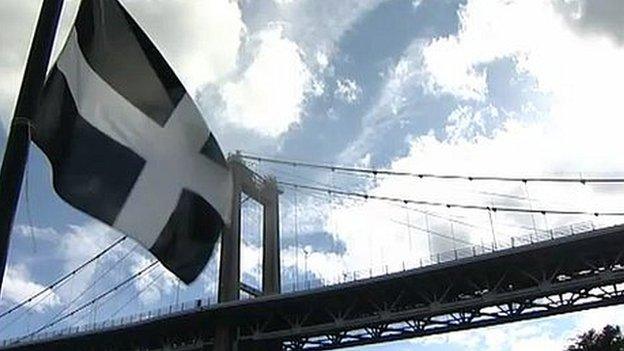
Cornish nationality was added to the census in 2005 after a campaign by some language and culture groups
Perhaps the most crucial point that has led towards Cornwall being given minority status is the fact it has its own language.
However, only about 1,000 of its 532,000 inhabitants are estimated to actually speak it, according to Julian German, a Cornwall Council cabinet member and chairman of the Cornish Language Partnership.
Now minority status has been given, Mr German said the council - which is "very keen to promote the language" - would be discussing with the department of transport whether or not to allow bilingual signs on the roads.
Elizabeth Stewart, who presents the Cornish language programme An Nowodhow on BBC Radio Cornwall, said its influence should not be under estimated.
"You can look at all sorts of different areas, regions, within the British Isles, and you will have areas that will have a particular type of Morris dancing or a particular type of music that is local to that area," she said.
"But does that mean they it has got its own identity as a nation? No. It has got its own local identity and that should be celebrated and cherished, but what makes Cornwall distinct and what links us with the Celtic nations of Wales Ireland, Scotland, it is the language."
Of course it is argued the distinct Cornish culture goes much further than just its language, including music, dance, games and folklore.
Every year, St Piran's Day - the national day of the people of Cornwall - is celebrated with parades, national dress and music.
And one of Cornwall's best known traditions - Padstow's Obby Oss - takes place every May Day. The centuries-old tradition sees the Obby Oss dance through the streets of the Cornish town, to welcome the coming of summer.
Mr German admitted the status did not attract any extra money but he said minority status would allow the Cornish people to feel confident as well as strengthening the Cornish "brand".
He said: "It's about self-confidence and people just being able to say they are Cornish.
"It is a discussion that many people have in Cornwall, whether it is in the workplace, in the pub, wherever, with someone saying 'I'm Cornish' and someone else saying 'no, you're not'.
"Now with this recognition, that is the government's position, we have been recognised and can be identified as Cornish, and as with the Welsh, the Scots and the Irish, that recognition will really help boost confidence."
- Published24 April 2014
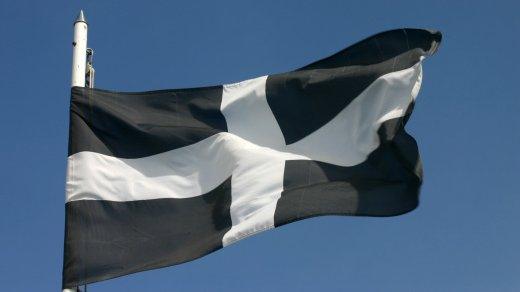
- Published26 November 2013
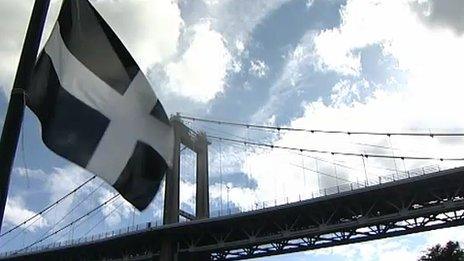
- Published21 March 2014
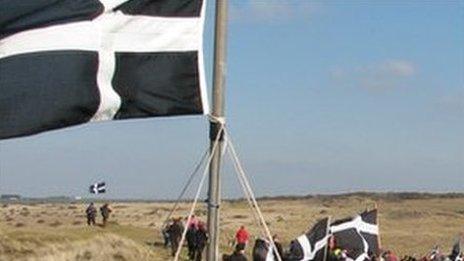
- Published3 January 2012

- Published5 March 2014
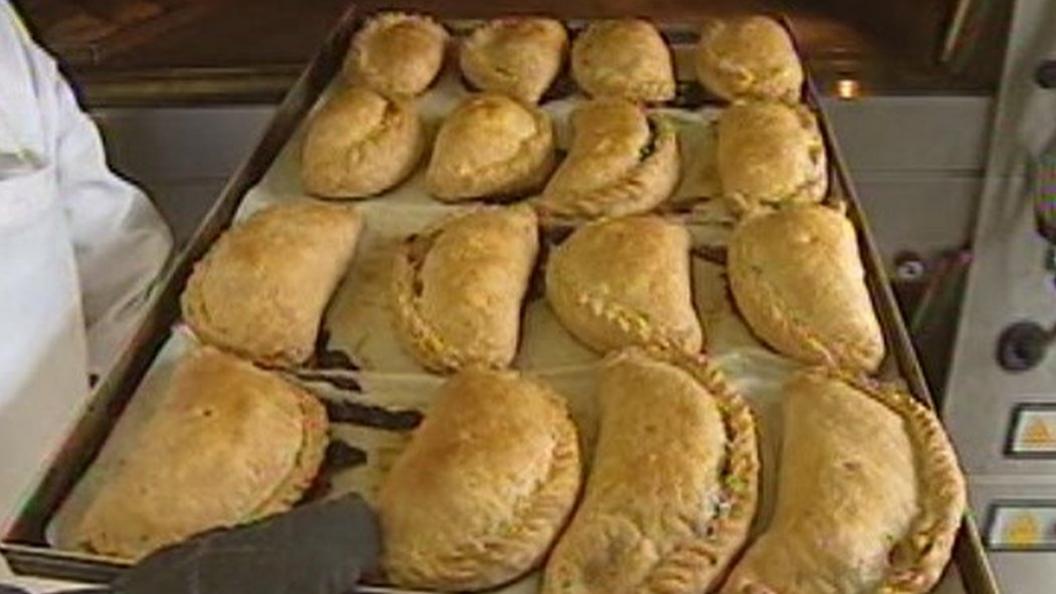
- Published7 December 2010